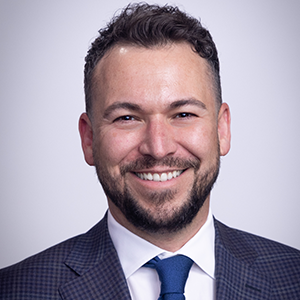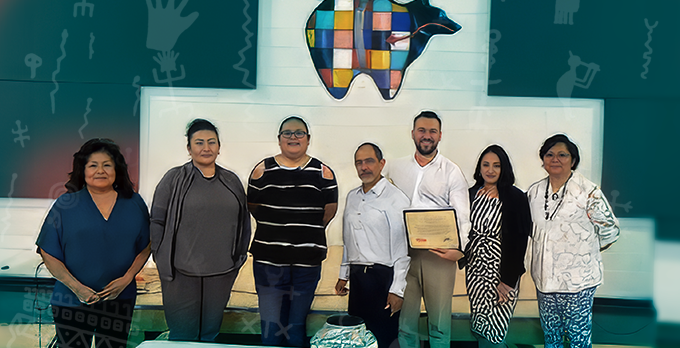With a community as diverse as ours, many patients at The University of New Mexico Hospital prefer to discuss their care in a language other than English. That is why, for years, hospital leaders have dedicated funding and resources to interpreter training inside the hospital.
Now, with a new first-of-its-kind program, they are dedicating those same resources to train medical interpreters outside UNM Hospital, at the Zuni Pueblo. This is important so that Zuni People can access care in their own language, in their home community. That alone reduces a significant barrier to access health care and makes the delivery of care more equitable on Tribal lands.
Importance of Language Access in Medicine:
- Improved Patient Safety: Clear communication between patients and health care providers is essential for accurate diagnosis and treatment. Language services help prevent medical errors and ensure patients fully understand their health conditions and treatment options.
- Enhanced Patient Experience: Patients who can communicate comfortably in their preferred language are empowered to have an active role in their health care. They are more likely to feel respected and understood, fostering trust and strengthening the patient-provider relationship.
- Equitable Health Care Access: Offering language services ensures that all community members, regardless of their preferred language, have equal access to health care services. This is particularly important in a diverse community like Bernalillo County, where many residents speak languages other than English.
UNM Hospital is also the Albuquerque area Indian Health Services Hospital. UNM leaders work closely with Tribal leaders to keep language and culture at the forefront of Native American patient care, no matter the location.

“When we went out into the community for a series of listening sessions, every community expressed language access was something that was very important to the people of Bernalillo County, and so was culturally sensitive care. Culturally informed care is something that Native Americans really want to see more of in hospitals.”
With close collaboration from the Zuni Tribe and the Zuni Comprehensive Health Center, UNM Hospital started training seven of their Zuni speaking employees as medical interpreters on April 5, 2024.
Program participants need to be able to demonstrate fluency in English and their other language.
Armijo explained that UNM Hospital works with the Tribes directly. The Tribe is the entity that tells them if someone is fluent enough in their language to be eligible for the medical interpreter training.
While it is definitely not exclusive, a good foundation on human anatomy and healthcare background is a plus.
Once enough people who meet the eligibility criteria have been identified, UNM Hospital will coordinate a class.
“We're not teaching language, we're teaching people how to convey information from the health care provider or patient in a way that’s understandable,” Armijo said.
The program’s first cohort completed their medical interpreter training on April 26, and immediately put their skills to work at the Zuni Comprehensive Health Center. Some of them discussed what they have learned through this process:
“Beforehand, when we were interpreting, we would be speaking directly to the patient, as opposed to transferring the conversation with the provider and the patient. So that was a big eye opener.” - Amber Dishta, MFA
“We have to think what we're going to say and how to pronounce things now other than just walking in and interpreting." - Calandra Latone, NA
The Future of the Program
Zuni is the largest of the 19 Pueblos in New Mexico. Each of those communities is diverse and speak different languages and dialects. The recent success of the Zuni Medical Interpreter Program has inspired conversations about offering similar trainings for other Tribes. Armijo said the Native American Health Services team continues to meet with all Tribal communities to continue that conversation with an eye on offering those languages inside UNM Hospital.
“This is worth every penny to be able to give the textbooks and the materials, and also our educators’ time, because we know that in training the community, we're bringing a service back to our doctors and nurses and all the other health care professionals to be able to better connect with their patients,” Armijo said. “It makes me really proud as a New Mexican.”
Future Medical Interpretation Programs
- UNM is currently working with the Tribes to form cohorts of 6-12 people who meet the language proficiency required for their specific Native American language.
- The cohort undergoes 40 hours of training over the course of a month.
- Successful completion of the training requires passing two tests in interpreting theory and medical terminology.
- The credential interpreters receive upon course completion is recognized internationally, so interpreters may apply their skills anywhere, not just at UNM Hospital.
If you are interested in the medical interpreter program for New Mexico Native American languages, please email dualroleinterpreters@salud.unm.edu for more information.
